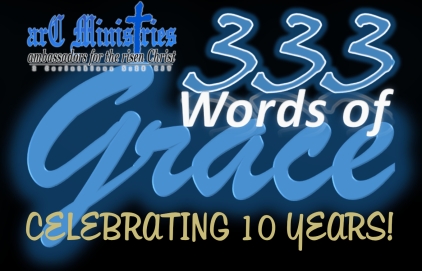Saturday, May 11, 2024
“And the Gentiles shall come to thy light, and kings to the brightness of thy rising” (Isaiah 60:3 KJV).
What can today’s Scripture teach us about spiritual calligraphy?
Though Israel in time past enjoyed many Divine blessings (Romans 9:4,5; cf. Romans 2:17-20 below), the nation as a whole did not take seriously God’s purpose and program for them.
Observe Romans 2:17-24: “[17] Behold, thou art called a Jew, and restest in the law, and makest thy boast of God, [18] And knowest his will, and approvest the things that are more excellent, being instructed out of the law; [19] And art confident that thou thyself art a guide of the blind, a light of them which are in darkness, [20] An instructor of the foolish, a teacher of babes, which hast the form of knowledge and of the truth in the law. [21] Thou therefore which teachest another, teachest thou not thyself? thou that preachest a man should not steal, dost thou steal? [22] Thou that sayest a man should not commit adultery, dost thou commit adultery? thou that abhorrest idols, dost thou commit sacrilege [steal idols from temples]? [23] Thou that makest thy boast of the law, through breaking the law dishonourest thou God? [24] For the name of God is blasphemed among the Gentiles through you, as it is written.”
Verses 21-24 show how the Jewish people were hypocrites. They bragged to the nations about their (Israeli) status of being God’s people, and how they had the Hebrew Bible… yet they were unwilling to see their own sinful nature as taught in their Hebrew Bible. Israel’s boast was, “We are better than the Gentiles!” Instead of spiritual calligraphy (God’s beautiful words believed by Israel and thus working in Israel to teach the Gentiles), it was spiritual cacography (Greek, “kakos,” as in “evil/sick/diseased;” “grapho,” or “I write”). God’s Hebrew Bible and His Jewish nation entrusted with it were ugly or repulsive to the Gentiles. Verse 24 reveals how Israel in time past repeatedly afforded Gentiles the opportunity to “blaspheme” (speak against) the LORD God. Sadly, watching the Jewish people live in sin, the nations replied: “If that is what it means to be a worshipper of JEHOVAH God, we would rather die in our pagan religions!”
To bring you a special study tomorrow, we will temporarily break away from this devotionals arc….

